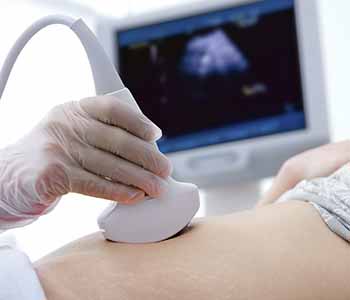Northwestern gynecologist in Chicago, explains STD testing in gynecology care and medicine
Staying healthy means regularly seeing your Northwestern gynecologist for medicine and care. If you are sexually active, STD testing is an important way to protect your health. Being open and honest about your sexual history helps the doctor determine your need for STD testing. With an office near Chicago’s Magnificent Mile, the team at Northwestern Women’s Health Associates offers complete gynecology care to patients from Munster, IN; Michigan City, IN; Schererville, IN; Highland, IN; and throughout the Chicagoland area.

Sexually transmitted diseases (STDs) are also known as sexually transmitted infections (STIs). These diseases or infections are caused by bacteria, viruses, and parasites. These germs may be found in semen, blood, vaginal secretions, and sometimes saliva. Generally, you can contract an STD through vaginal, anal, or oral sex with an infected partner. The organisms that cause genital herpes or genital warts can be spread through skin contact. Hepatitis B can be passed by sharing personal items with an infected person. Whether you have partners of the same sex or opposite sex, there are risks of STDs.
Prevention
Only colds and flu are more commonly spread in the United States than STDs. Preventing STDs is the preferred method of treatment. Practicing abstinence is the only way to completely protect yourself from contracting an STD. However, by following safe sex practices, you can greatly reduce your chance of becoming infected. Safe sex is not risk-free, but is better than taking no precautions. Safe practices include:
- Use condoms or protection for every sexual encounter.
- Be in a monogamous relationship.
- Know your partner and his or her sexual history.
- Reduce the number of partners.
- Get tested!
What is STD testing?
Your Northwestern OBGYN can help you understand the risks, tests, and treatments for STDs. If you are sexually active, have had or currently have multiple partners, or have had unprotected sex, it is important to be tested for STDs. In many cases, there are no signs or symptoms of an infection, so you may not even be aware of your condition. Getting tested protects you and your current or future partner. The types and frequency of STI testing recommended vary depending on your age, sexual behaviors, and certain risk factors. Remember, just because you may be having a gynecology exam or Pap test, that does not mean you are automatically receiving STD testing. You need to openly discuss your concerns with your Northwestern GYN.

Testing for common STDs may include:
- Genital herpes screening may include a tissue scraping or a culture of blisters. Blood testing may show a past infection. Unfortunately, the results of either test may not be conclusive.
- HPV may lead to cervical cancer or genital warts. A Pap test or HPV test may diagnose the virus. A vaccination is available for some types of the HPV virus.
- Chlamydia and gonorrhea may be present without symptoms. Screening is done through a urine test or swab inside the penis or cervix.
- HIV, hepatitis, and syphilis are screened using a blood test. Vaccinations are available for hepatitis A and B if your results are negative for virus exposure.
STD testing guidelines
STD testing recommendations for women include the following:
- Patients aged 13-64 should be tested at least once for HIV.
- Yearly chlamydia and gonorrhea screening are advised for women under 25 who are sexually active as well as all adult women with new partners, multiple partners, or a partner with an STD.
- All pregnant women should be tested for syphilis, HIV, and hepatitis B. At-risk pregnant women should be tested for chlamydia and gonorrhea early and as needed throughout pregnancy.

These guidelines recommend when patients should be tested and who may be at risk. Additional reasons for testing include:
- Having multiple sexual partners
- Having a history of unprotected sex
- Entering a relationship with a new partner
- Discovering your partner, past or present, was unfaithful
It is important to communicate openly with your Northwestern GYN about your history to ensure you get the best care. If you have a good reason, such as those above, to be tested, always let your physician know. If you need a Northwestern gynecologist, contact our Chicago office today for an appointment with our experienced team. Call 312-440-9400 .



